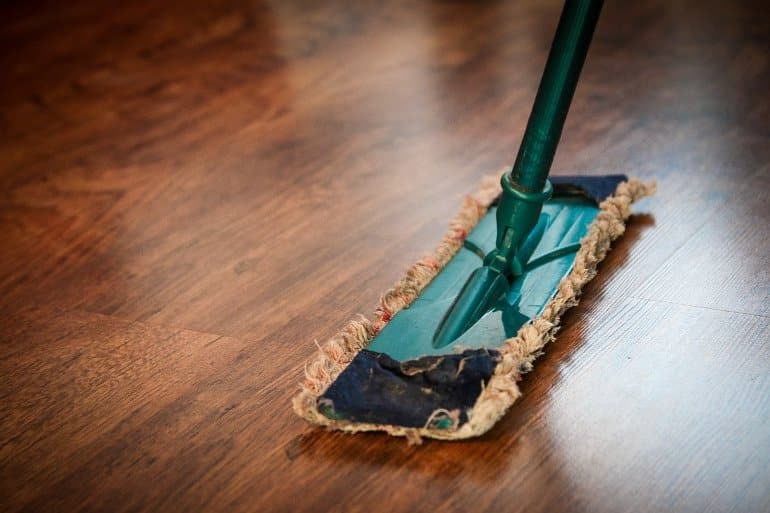Summary: Researchers report a cleaner living environment may not detrimentally impact a child’s developing immune system, as current theories suggest.
Source: UCL
The theory that modern society is too clean, leading to defective immune systems in children, should be swept under the carpet, according to a new study by researchers at UCL and the London School of Hygiene & Tropical Medicine.
In medicine, the ‘hygiene hypothesis’ states that early childhood exposure to particular microorganisms protects against allergic diseases by contributing to the development of the immune system.
However, there is a pervading view (public narrative) that Western 21st century society is too hygienic, which means toddlers and children are likely to be less exposed to germs in early life and so become less resistant to allergies.
In this paper, published in the Journal of Allergy and Clinical Immunology, researchers point to four significant reasons which, they say, disprove this theory and conclude we are not “too clean for our own good”.
Lead author, Emeritus Professor of Medical Microbiology Graham Rook (UCL Infection & Immunity), said: “Exposure to microorganisms in early life is essential for the ‘education’ of the immune and metabolic systems.
“Organisms that populate our guts, skin and airways also play an important role in maintaining our health right into old age: so throughout life we need exposure to these beneficial microorganisms, derived mostly from our mothers, other family members and the natural environment.
“But for more than 20 years there has been a public narrative that hand and domestic hygiene practices, that are essential for stopping exposure to disease-causing pathogens, are also blocking exposure to the beneficial organisms.

“In this paper, we set out to reconcile the apparent conflict between the need for cleaning and hygiene to keep us free of pathogens, and the need for microbial inputs to populate our guts and set up our immune and metabolic systems.”
In a review of evidence, the researchers point to four factors.
- Firstly, the microorganisms found in a modern home are, to a significant degree, not the ones that we need for immunity.
- Secondly, vaccines, in addition to protecting us from the infection that they target, do a lot more to strengthen our immune systems, so we now know that we do not need to risk death by being exposed to the pathogens.
- Thirdly, we now have concrete evidence that the microorganisms of the natural green environment are particularly important for our health; domestic cleaning and hygiene have no bearing on our exposure to the natural environment.
- Finally, recent research demonstrates that when epidemiologists find an association between cleaning the home and health problems such as allergies, this is often not caused by the removal of organisms, but rather by exposure of the lungs to cleaning products that cause a type of damage that encourages the development of allergic responses.
Professor Rook added: “So cleaning the home is good, and personal cleanliness is good, but, as explained in some detail in the paper, to prevent spread of infection it needs to be targeted to hands and surfaces most often involved in infection transmission. By targeting our cleaning practices, we also limit direct exposure of children to cleaning agents.
“Exposure to our mothers, family members, the natural environment, and vaccines can provide all the microbial inputs that we need. These exposures are not in conflict with intelligently targeted hygiene or cleaning.”
About this immunity research news
Source: UCL
Contact: Henry Killworth – UCL
Image: The image is in the public domain
Original Research: Open access.
“Microbial exposures that establish immunoregulation are compatible with targeted hygiene” by Graham Rook et al. Journal of Allergy and Clinical Immunology
Abstract
Microbial exposures that establish immunoregulation are compatible with targeted hygiene
It is often suggested that hygiene is not compatible with the microbial exposures that are necessary for establishment of the immune system in early life.
However, when we analyze the microbial exposures of modern humans in the context of human evolution and history, it becomes evident that whereas children need exposure to the microbiotas of their mothers, other family members, and the natural environment, exposure to the unnatural microbiota of the modern home is less relevant.
In addition, any benefits of exposure to the infections of childhood within their household setting are at least partly replaced by the recently revealed nonspecific effects of vaccines.
This article shows how targeting hygiene practices at key risk moments and sites can maximize protection against infection while minimizing any impact on essential microbial exposures. Moreover, this targeting must aim to reduce direct exposure of children to cleaning agents because those agents probably exert TH2-adjuvant effects that trigger allergic responses to normally innocuous antigens.
Finally, we need to halt the flow of publications in the scientific literature and the media that blame hygiene for the increases in immunoregulatory disorders.
Appropriately targeted hygiene behavior is compatible with a healthy lifestyle that promotes exposure to essential microorganisms.






